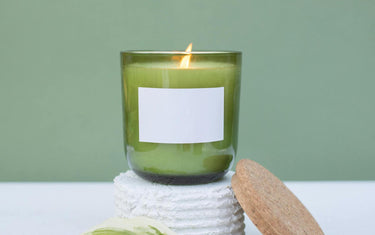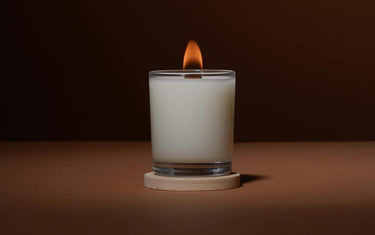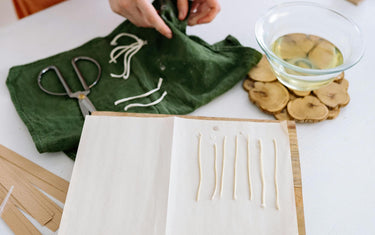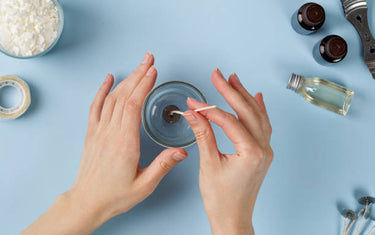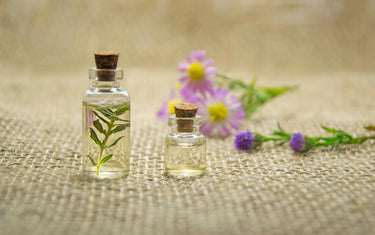3 min read / 17 February 2022 / Caitlin Devlin
Flash points and essential oils: Why do they matter?
Understanding flash points and their impact on scent is an important part of crafting.
Share this post

When working with essential or fragrance oils, there’s a few key things that can help to make the results of your crafting more predictable.
Each oil you purchase should come with a safety data sheet, or SDS, which contains a list of key variables about the oil. One term that you may have come across is ‘flash point’.
Understanding an oil’s flash point can be crucial to getting the results you want when making candles and can help you to handle the product in a much safer manner. In this article we’ll unpack what a flash point is, why it’s important, and how you can use this information to get better results.
What is a flash point?
Oftentimes crafting with essential or fragrance oils involves heating them in some manner. Applying heat to an oil may cause it to begin to vaporise, and this vaporisation may be so subtle that at first, we don’t notice it.
However, all fluids have a point at which they give off enough vapour that an ignition source could ignite it and cause a potentially dangerous reaction. This is the oil’s flash point.
This sounds more dangerous than it usually is. An ignition source would have to be an open flame, not just heat, so unless you are holding a lit match over the vapours then your oil is unlikely to ignite.
Nonetheless, essential oils with low flash point are considered riskier to transport and work with.
Why are flash points important?
A flash point tells us at what heat a significant amount of the oil will vaporise. Essential oils with a low flash point vaporise quickly.
This can mean that if they are used in candle making, some of their scent can be lost in the candle making process.
These effects aren’t usually extreme, and it’s unlikely an oil will lose a large amount of its scent before reaching its boiling point – a temperature that can also be found on the SDS.
However, using oils with low flash points in candle making can still impact the quality of the end product.

How can I prevent my candle from having a weaker scent?
It’s recommended to match the flash point of an essential oil to the wax melt temperature or wax pour temperature.
If flash point is similar to or higher than the wax melt temperature, the scent of the candle will be stronger. However, if the flash point is much lower than the wax melt temperature, the candle will have a weaker scent.
You can also try using a blend of oils in your recipe. Essential oils with a low flash point are often blended with essential oils with a high flash point in order to raise the overall flash point and allow the candle to retain its scent.
How can I find the flash point of an oil?
If you are unsure of the flash point of an oil or blend, you can try the following:
- Put a few drops of essential oil into a saucepan of water and put it over a low heat.
- Place a thermometer into the water, ensuring that it does not touch the saucepan.
- Watch until the oil begins to gently vaporise – the temperature at which this happens is the flash point.

In summary:
- The flash point of an oil is the temperature at which the oil produces enough vapour to ignite.
- If the flash point of your oil is too low, then your candle may have a weaker scent.
- It is possible to prevent this by monitoring the flash points of the oils you use, or by blending oils together.
Shop our essential oils here.
Shop our fragrance oils here.

